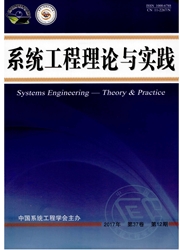

 中文摘要:
中文摘要:
票价策略是城市轨道交通经营定位决策的重要组成部分,是吸引客流和取得适当客流市场份额的关键因素,对城市轨道交通的经营状况和竞争能力起到决定性的作用.将城市轨道交通票价策略划分为票制方案和票价水平两部分,票制方案包括单一票制、计程票制和计站票制等.提出了基于客流弹性需求下运营企业的列车开行决策,对各种票制下的票价策略优化进行了全面考虑,建立了以包含客流需求和运营效益在内的社会利益最大化为目标函数的轨道交通线路票价策略模型.根据模型特点,设计了模拟退火算法求解.以长沙地铁2号线为例,计算得出了各种票制下的最优票价策略和实用票价策略.对票价策略进行了综合分析,给出了长沙地铁2号线的票价建议方案.
 英文摘要:
英文摘要:
Fare decision, as an important part of management location decision of urban rail transit, is the key factor of attracting passengers and get a appropriate market share, and determines urban rail transit's operating conditions and competitiveness. Urban rail transit fare strategies include fare structures and fare level. Fare structures are divided into flat fare, distance-based fare and sectional fare. We propose a rail transit line fare strategy model based on operating plan under passengers' elastic demand, and the optimization of fare level under various fare structures comprehensively considered. The model's objective function is to maximize social profits, containing passenger flow demand and benefits of operation enterprises. Simulated annealing algorithm is designed based on the model's features. Taking Changsha Metro Line 2 for example, we get optimal and practical fare strategies of various fare structures. Based on the comprehensive analysis of optimal strategies, the recommended fare schemes of Changsha Metro 2 are given.
 同期刊论文项目
同期刊论文项目
 同项目期刊论文
同项目期刊论文
 期刊信息
期刊信息
